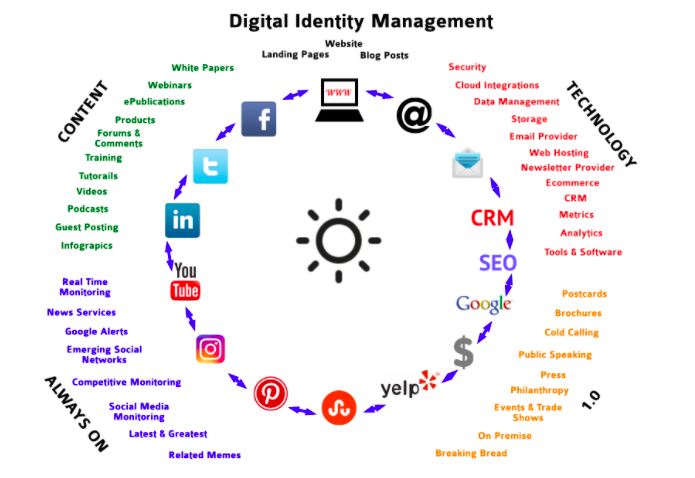• What does it mean to network using social media?
Social media means that we can meet people from all over the world just through our electronic devices. Not only can you make friends on social media, but you can also see important events happening in each place in real time.
• How are we motivated to participate in networked publics?
Richardson & Mancabelli state, “In our PLNs, we learn what we want to learn using the vast resources and people online (or off) that can help us learn it”. Social media is a process of accessing information and sharing it. For example, you ask a question on one of the social media platforms and then someone will answer your question. You share learning resources on the web, and others will get information because of your sharing. Likewise, our devices will recommend relevant knowledge because of what you often search for. In the digital age, we can see or know what we want to know from any device, at any time, from any place – this is our personal learning network. Each of us has a different learning network, depending on what you are searching for.
• What are the risks & rewards of public communications?
There are risks when we ask questions or look for resources on social media. For example, some resources charge a fee or social platforms that ask you to fill in some personal information. These are all risks for the individual. However, if you share information regularly on social media platforms and have many followers, you will be approached to do some advertising and earn a fee for it.

• What is a digital identity?
A digital identity does not just represent a person, it represents a set of data. There is a big difference between a digital identity on social media and digital identity for some important accounts. In important accounts, it includes your personal information and various vital records from your birth to the present. The images we share on social media or anything we say both create their own digital identity.
• How do personal versus professional approaches to digital identity affect social media use?
A professional digital identity is a social media account that some businesses or companies register specifically for their brand. For example, some gaming companies post their status on social media for game updates, or into game releases. Many gaming enthusiasts follow these accounts. These professional accounts will only post content that is relevant to their profession. They don’t share personal stuff like personal social media accounts do.
• How do digital identities converge in networked publics – what are the impacts and/or benefits?
The digital identity displayed on social media platforms is not necessarily real and you can have any identity you want. For example, on social media such as Facebook and ins, you may choose a name that is not real to create your account. Of course, you can also set your real information on social media, or set your personal information to be private. Digital identity has a big impact on the web. Thanks to big data, many people’s identities can be easily found on the web. Many people use this to fake identities to trick children or elderly people. On social media we are free to speak. We can express different opinions, share our personal lives or comment on what others have to say. As these statements are public, they may affect yourself for better or worse at some point in the future.
Reference:
What is a Personal Learning Network (PLN)? FutureLearn. (n.d.). https://www.futurelearn.com/info/courses/learning-network-age/0/steps/24644.

Awesome use of “A digital identity does not just represent a person, it represents a set of data” – keep it up and be sure to use references in your work.
I think digital identities also show different people’s preferences. As a result, what people see on social media is mostly what they are interested in. It’s also an impact of digital identity on the use of social media.
Hi Wei, Wonderful work! I think you really naield those qestions! I stronly agree with you answer in “What is a digital identity”, I do think digital identity represents a data. And those datas are not easly to erase. Also, I agree taht the digital identity on social media might not be real. I also said similar things in my blog that sometimes digital identity on social medias canoot fully represent a person.
Hi Wei,
I totally agree with your points! When you were answering the risk of public communications, it reminded me of how I once shared my own contact information on some social media platform in order to sublet the apartment, and after that, I often received many calls and texts advertising my apartment, which did bother me for a while.
Hi Wei! I enjoyed reading your blog post and I agree with your last paragraph on the digital identities converge in networked publics. Anyone can be anything on the internet and this can be for better or for worse.
I agree with your post, Social media is an important tool for identifying job opportunities for potential candidates. Potential employers use it to get a sense of what kind of person they are hiring. Using social media to screen candidates is a great way to see applicants’ natural behavior without the stress of a job interview.